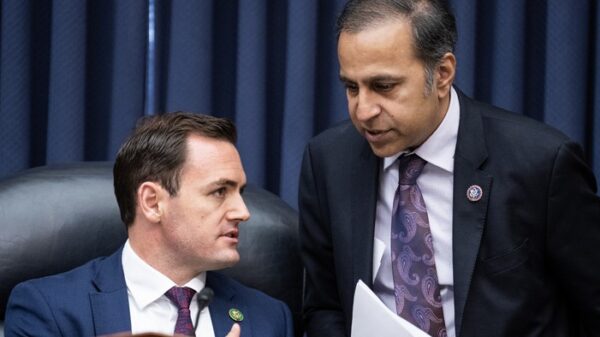Stakeholders fear an overly broad application of the tax provisions beyond virtual currency exchanges.
Six senators trying to strike a balance in regulating a vast and growing marketplace of virtual currencies are asking Treasury Secretary Janet Yellen to soothe investor worries that implementation of a law requiring transaction facilitators to report information to ensure appropriate tax collection will drive innovators away.
“We urge the Department of the Treasury to provide information or informal guidance as soon as possible – no later than the end of the current calendar year – regarding the definition of ‘broker’ as discussed during the legislative process,” they wrote in a letter Tuesday. “Some market participants have expressed concern that an overly-broad interpretation of this provision’s definition of ‘broker’ could capture certain individuals who are solely involved with validating distributed ledger transactions through mining, staking, or other methods, and entities solely providing software or hardware solutions enabling users to maintain custody of their own digital asset wallets.”
The new requirements were included in the Infrastructure Investment and Jobs Act, which became law Nov. 15. The narrow definition of broker favored by the industry would specifically apply to virtual currency exchanges which they say would have the kind of information—such as their client identities and yields—the Internal Revenue Service typically collects on trades of traditional securitiies.
The legislation, as is, updates the definition of broker in the tax code to, “any person who (for consideration) is responsible for regularly providing any service effectuating transfers of digital assets on behalf of another person.”
The senators—Rob Portman, R-Ohio, Mike Crapo, R-Idaho, Pat Toomey, R-Penn., Cynthia Lummis, R-Wyo., Kyrsten Sinema, D-Ariz., and Mark Warner, D-Va.—said they are ready to author additional legislation that might be needed to further establish their intent.
An amendment to clarify the application of the requirements at the time of passage was reportedly held hostage during a fight over additional spending on military construction in the broader bill.
Cryptocurrencies, and auxiliary service providers in the ecosystem which can provide greater anonymity for transactions, have also elevated security concerns, including as it relates to ransomware.
“Digital assets could be impactful technological developments in certain sectors, and clear guidelines on tax reporting requirements will be important to those in this ecosystem,” the senators wrote. “It will be important that we continue to work to provide further clarity, and to help ensure that the United States remains a global leader in financial innovation and development, while ensuring that this technology does not become a vector for illicit finance, tax evasion, or other criminal activity.”









































